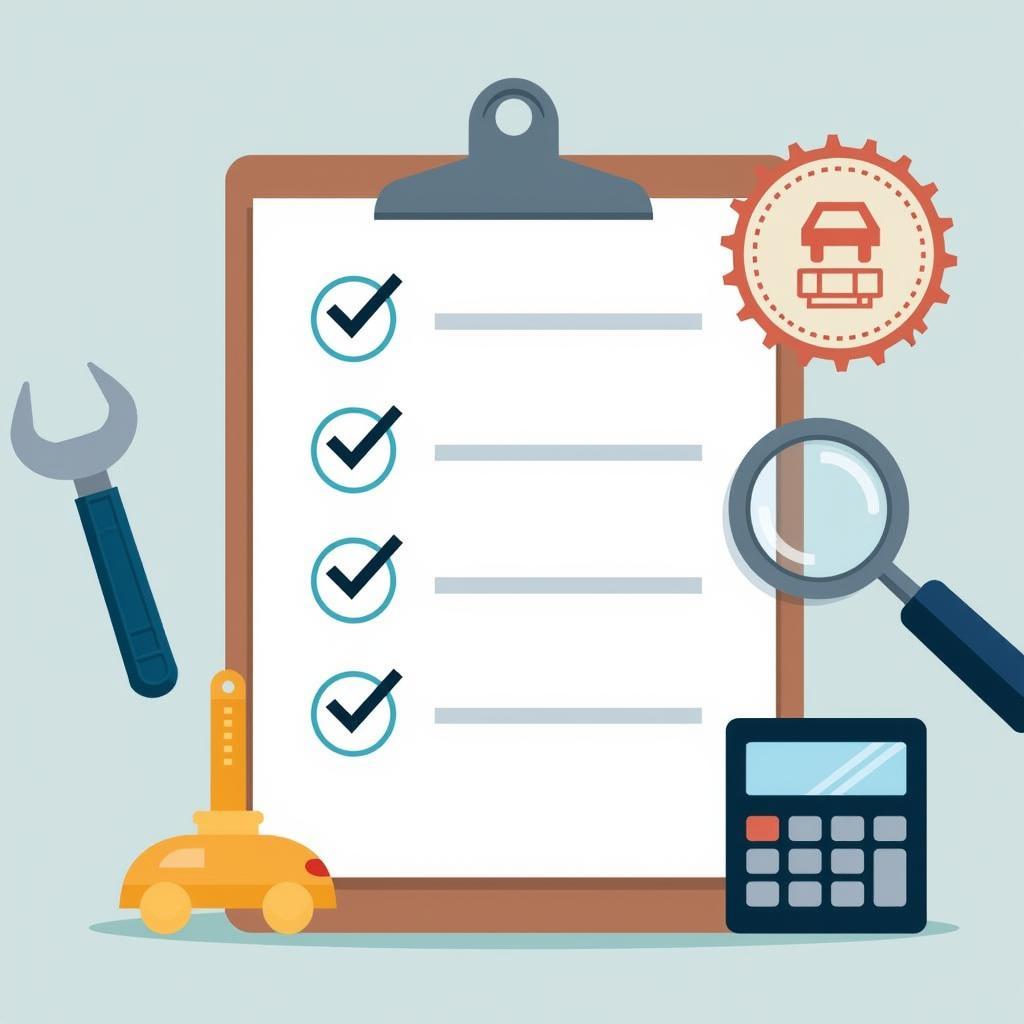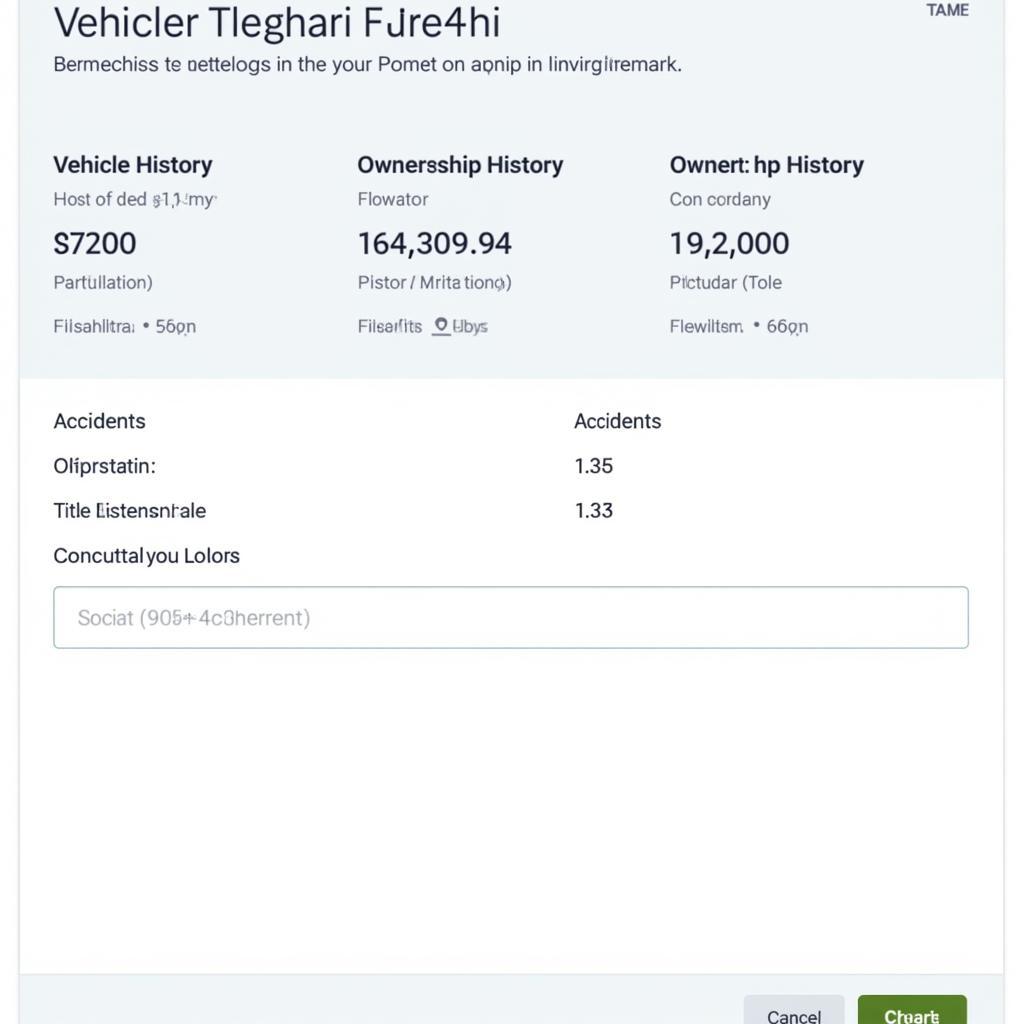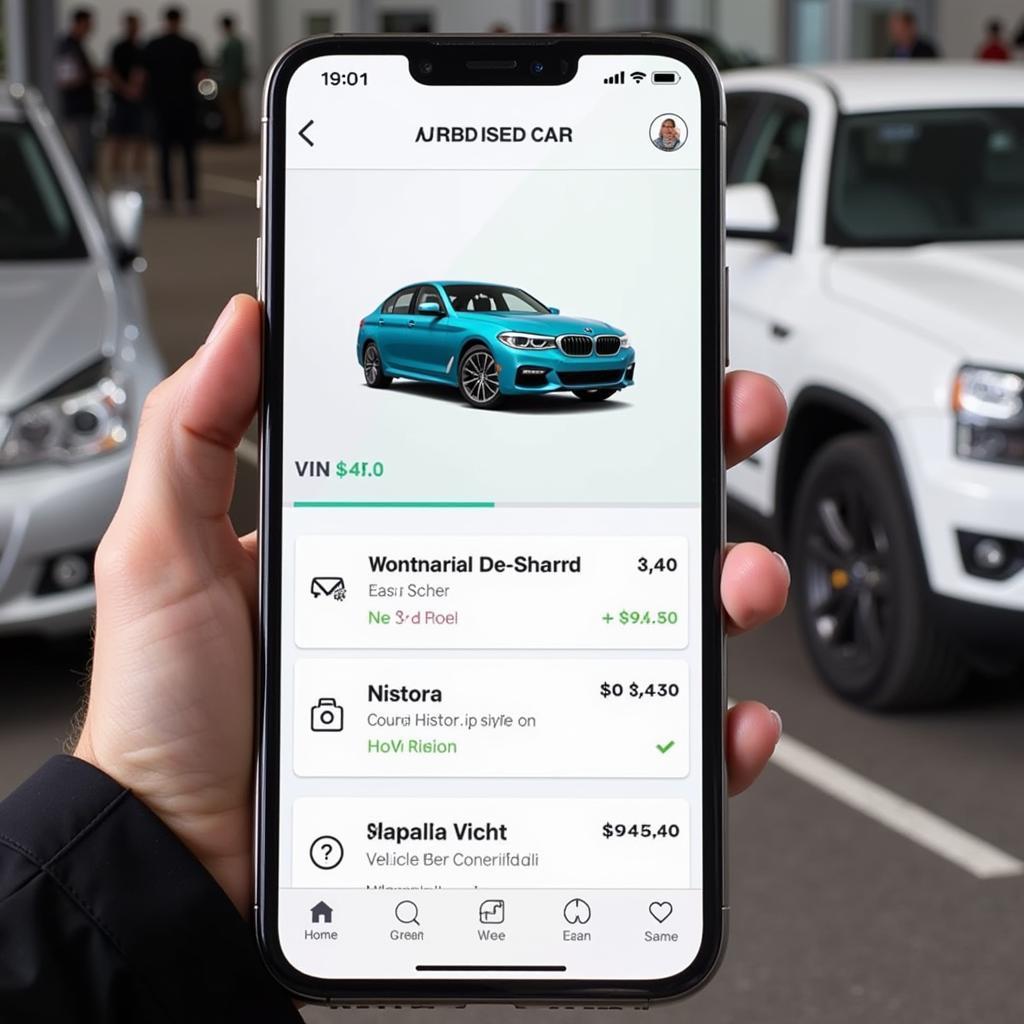Navigating the used car market can feel like a minefield. Using the right Used Car Buying Tools can empower you to make informed decisions, avoid costly mistakes, and drive away with a vehicle you love. This guide explores the essential tools and resources available to help you confidently purchase a used car.
Unveiling the Power of Used Car Buying Tools
 Used Car Buying Tools Checklist
Used Car Buying Tools Checklist
Choosing the right used car buying tools can dramatically simplify your purchase and protect you from potential pitfalls. These tools provide valuable insights into a vehicle’s history, condition, and market value, empowering you to negotiate effectively and secure the best deal. From vehicle history reports to online comparison tools and mobile apps, let’s explore the key resources available to today’s savvy car buyer.
Essential Tools for Every Used Car Buyer
Vehicle History Reports: Unmasking a Car’s Past
A vehicle history report is a crucial first step in the used car buying process. It provides a detailed record of the car’s past, including accidents, title issues, mileage discrepancies, and service records. Services like Carfax and AutoCheck are reputable providers, offering comprehensive reports for a small fee. This information can help you identify potential red flags and avoid purchasing a vehicle with hidden problems.
What are the benefits of a vehicle history report?
- Accident History: Discover any past accidents, including the severity and location of damage.
- Title Issues: Identify potential title problems such as salvage titles, flood damage, or odometer rollback.
- Ownership History: See how many previous owners the car has had and how long they owned it.
- Service Records: Gain insights into the car’s maintenance history, including oil changes, tire rotations, and major repairs.
 Sample Vehicle History Report
Sample Vehicle History Report
Online Comparison Tools: Finding the Perfect Fit
compare buying new vs used car tool
Online car comparison tools are invaluable resources for researching different makes and models. Sites like Edmunds, Kelley Blue Book (KBB), and Car and Driver allow you to compare vehicles side-by-side, evaluating features, performance, safety ratings, and predicted reliability. These tools can help you narrow down your choices and focus on vehicles that meet your specific needs and budget.
Mobile Apps: Putting Information at Your Fingertips
Several mobile apps can enhance your used car buying experience. Apps like VINCheck and iSeeCars offer VIN scanning capabilities, providing quick access to vehicle history reports and market pricing data. Other apps provide loan calculators, car insurance quotes, and even virtual reality test drives. These tools put essential information at your fingertips, allowing you to research and compare vehicles on the go.
 Mobile App for Used Cars
Mobile App for Used Cars
Expert Insights: Tips from the Pros
John Davis, a seasoned automotive technician with over 20 years of experience, emphasizes the importance of pre-purchase inspections. “A professional inspection can reveal hidden mechanical issues that a vehicle history report might not catch,” says Davis. “It’s a small investment that can save you from costly repairs down the road.” He also recommends checking for recalls using the National Highway Traffic Safety Administration (NHTSA) website.
Sarah Miller, a certified financial advisor, advises buyers to secure pre-approval for a car loan before visiting dealerships. “Pre-approval gives you a clear understanding of your budget and strengthens your negotiating position,” explains Miller. “It also allows you to compare loan rates from different lenders and choose the best offer.”
Maximizing Your Used Car Buying Tools
tools to bring when buying a used car
Understanding the market value of a used car is essential for negotiating a fair price. kbb car comparison tool can be really helpful in understanding market value. Tools like KBB and Edmunds provide pricing guides based on factors like mileage, condition, and location. These tools can help you determine a reasonable price range and avoid overpaying for a vehicle.
Conclusion: Empower Yourself with Used Car Buying Tools
Using the right used car buying tools can significantly improve your purchasing experience. From vehicle history reports and comparison websites to mobile apps and expert advice, these resources empower you to make informed decisions, negotiate effectively, and drive away with confidence. By utilizing these tools, you can navigate the used car market with ease and find the perfect vehicle to meet your needs and budget. Remember to research thoroughly, compare your options, and prioritize a pre-purchase inspection.
FAQ: Your Used Car Buying Questions Answered
- What is a VIN? A Vehicle Identification Number (VIN) is a unique 17-digit code assigned to every vehicle. It contains information about the car’s manufacturer, model year, and other specifications.
- How much does a vehicle history report cost? Vehicle history reports typically cost between $20 and $40.
- What is a pre-purchase inspection? A pre-purchase inspection is an examination of a used car performed by a qualified mechanic before you buy it.
- How can I check for recalls on a used car? You can check for recalls by entering the VIN on the NHTSA website.
- What is a certified pre-owned (CPO) car? A CPO car is a used car that has passed a thorough inspection and comes with an extended warranty.
- How can I negotiate the price of a used car? Research the market value of the car and be prepared to walk away if you can’t reach a fair price.
- What are some common scams to watch out for when buying a used car? Common scams include odometer rollback, curbstoning (selling a car without a dealer license), and title washing (concealing a salvage title).
Some other questions to consider are: How to finance a used car? What are the best used cars for families? What are the best used cars for fuel economy?
When you need assistance, please contact us via WhatsApp: +1(641)206-8880, Email: [email protected] or visit our office at 910 Cedar Lane, Chicago, IL 60605, USA. Our customer service team is available 24/7.

Leave a Reply